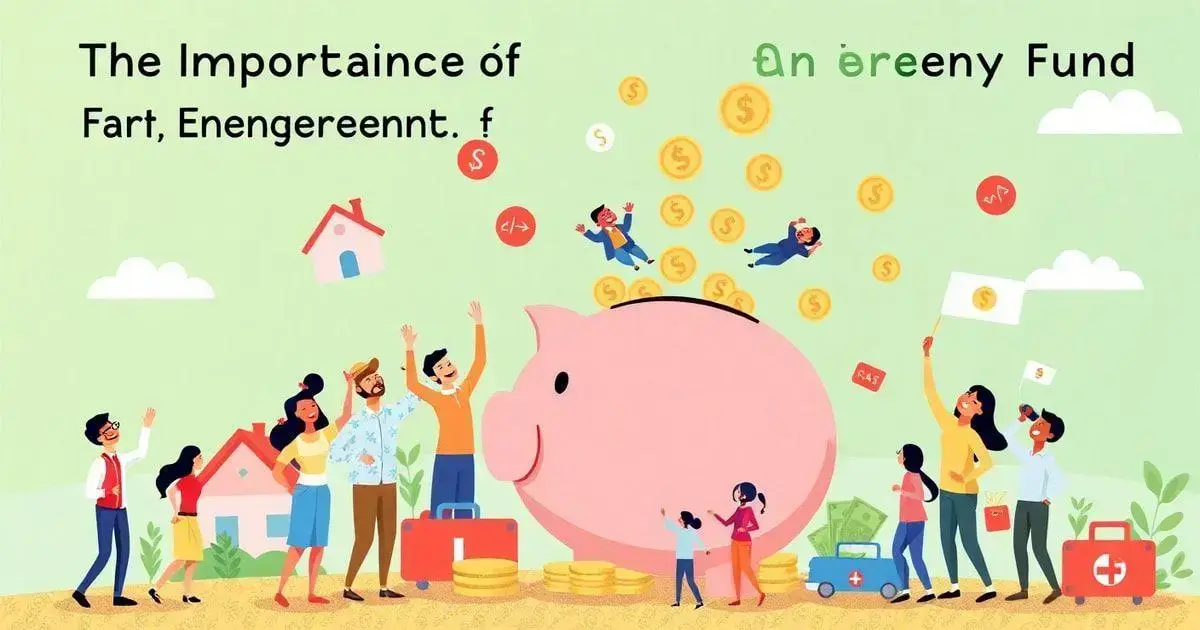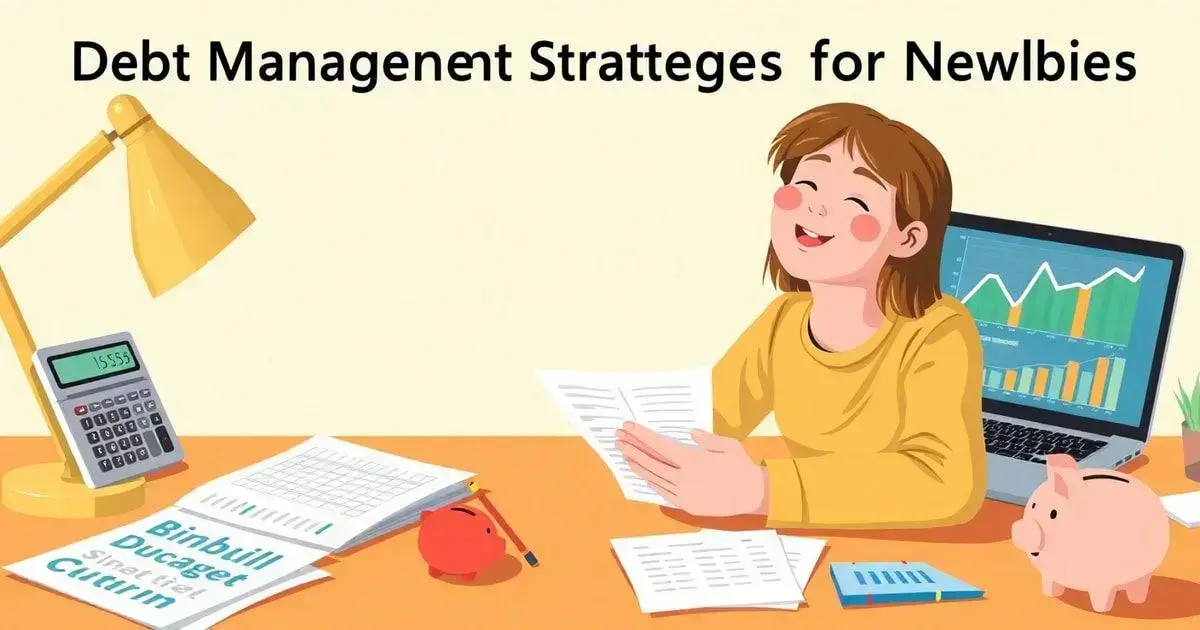Beginner Finance Strategies are the foundation for gaining control over your financial future. Whether you’re just starting out or looking to improve your money management skills, understanding the basics is crucial.
Learning to set clear financial goals and prioritize them can help you focus on what truly matters. This includes everything from building an emergency fund to paying off debt effectively.
By creating and sticking to a budget, you’ll not only gain a better understanding of your finances but also pave the way for long-term stability and growth. Continue reading to explore actionable strategies that can transform your financial journey.
Understanding Personal Finance Basics
Understanding personal finance basics is crucial for achieving financial wellness. Start by gaining knowledge about income, expenses, and savings. Learn how to track your spending to see where your money goes each month. Creating a budget can help you manage your finances, allowing you to allocate money towards necessary expenses and savings opportunities.
It’s important to establish a solid foundation of financial literacy. Familiarise yourself with terms such as assets, liabilities, and net worth. Assets are things that put money in your pocket, like investments, while liabilities are obligations that take money out, like debts.
Additionally, explore the various types of accounts available, such as savings accounts which can help you earn interest on your savings over time. Make sure to take advantage of any employer-sponsored retirement plans that may be available to you, as these can significantly boost your long-term savings. Being informed and proactive about your financial choices will ultimately lead to a more secure financial future.
Setting Financial Goals for Beginners

Setting financial goals is a foundational step in Beginner Finance Strategies and a pathway to achieving financial independence. Start by identifying your short, medium, and long-term objectives.
Short-term goals might include saving for a holiday or paying off a small debt, while medium-term goals could involve saving for a car or funding education. Long-term goals often focus on significant milestones like retirement planning or purchasing a home.
To ensure success, apply the SMART criteria to your goals: make them Specific, Measurable, Achievable, Relevant, and Time-bound. Writing your goals down and reviewing them regularly is a core part of Beginner Finance Strategies, as it keeps you motivated and accountable. This practice also allows you to track progress and celebrate milestones.
As your life circumstances change, it’s crucial to revisit and adjust your financial goals. Flexibility ensures you stay aligned with your evolving priorities while remaining on course to achieve your desired financial outcomes.
Budgeting Tips to Manage Your Money
Budgeting is a key skill that can help you manage your money effectively. Start by tracking your income and expenses to understand where your money is going. Create a budget that reflects your priorities and goals.
One popular method is the 50/30/20 rule – allocate 50% of your income to needs, 30% to wants, and 20% to savings and debt repayment. This simple structure can help you stay balanced while allowing for some flexibility in spending.
Consider using budgeting tools or apps to make tracking easier. These tools can simplify the process and provide insights into your financial habits. Regularly review your budget to adjust for changes in income or expenses. Making these adjustments ensures that you stay on course towards your financial goals.
Remember, budgeting is not about restrictive spending but about making informed choices that help you achieve financial stability.
The Importance of an Emergency Fund

An emergency fund is a cornerstone of Beginner Finance Strategies, serving as a financial buffer during unexpected events like medical emergencies or job loss. Experts recommend saving enough to cover three to six months’ worth of living expenses. Start small—setting aside even a modest amount each month can lead to significant savings over time.
To streamline your savings, set up an automatic transfer to a dedicated emergency savings account. This effortless approach aligns with effective Beginner Finance Strategies by promoting consistency and discipline.
Ensure the account is accessible and offers a good interest rate, but avoid long-term investments that could delay withdrawals during emergencies.
With an emergency fund in place, you gain peace of mind and financial security. It prevents reliance on debt during crises, empowering you to handle unexpected expenses confidently. Embracing this essential strategy helps establish a stable foundation for managing your personal finances.
Investing 101: Start with the Basics
Investing is a powerful way to grow your wealth over time and is an essential part of Beginner Finance Strategies. Before diving in, it’s crucial to understand the basics. Popular investment options include stocks, bonds, and mutual funds, each carrying unique risks and rewards.
Stocks offer ownership in a company, providing potential for growth if the company thrives. However, they come with higher risk, as their value can fluctuate.
Bonds, on the other hand, are loans to governments or companies, offering lower risk and consistent interest payments, though with generally lower returns. Mutual funds pool money from various investors to buy a diversified mix of stocks or bonds, helping to spread risk across different assets.
When starting your investment journey, consider your financial goals and risk tolerance. A diversified portfolio can shield you from market volatility, aligning with long-term success principles.
By incorporating investing into your Beginner Finance Strategies, you can work towards achieving financial stability and growth while understanding the value of patience in building wealth.
Debt Management Strategies for Newbies

Beginner Finance Strategies play a vital role in achieving financial stability, especially when it comes to managing debt. Start by creating a detailed list of your debts, including credit cards, loans, and any outstanding balances. Understanding the full scope of what you owe is the first step toward regaining control over your finances.
One highly motivating approach is the debt snowball method. This involves paying off your smallest debt first while continuing minimum payments on larger debts.
Once the smallest debt is cleared, move on to the next, creating a sense of accomplishment with each step. Alternatively, the debt avalanche method targets debts with the highest interest rates first, potentially saving you significant money over time.
Creating a realistic budget is essential for either method to succeed. Prioritize debt repayment by cutting unnecessary expenses and directing extra funds toward your goals. If managing debt feels overwhelming, seek professional guidance to develop a tailored plan.
With the right Beginner Finance Strategies, patience, and determination, you can work toward financial freedom and long-term stability.
Resources for Learning More about Finance
There are many resources available for learning more about finance. Start with books that cater to different levels of expertise, such as “The Total Money Makeover” by Dave Ramsey for budgeting basics, or “Rich Dad Poor Dad” by Robert Kiyosaki for investment insights.
Online courses can also be beneficial; platforms like Coursera and Udemy offer finance-related courses that can help strengthen your understanding.
You can explore financial podcasts and YouTube channels, which provide valuable information in an engaging format. For example, the “BiggerPockets Podcast” focuses on real estate investing. Following credible finance blogs like “NerdWallet” or “The Simple Dollar” can keep you updated on financial news and tips.
Additionally, consider joining local workshops or online webinars, as they often provide practical advice and networking opportunities.
Finally, speaking with financial advisors can provide personalised guidance tailored to your financial situation. Utilizing these resources will enhance your financial knowledge and empower you to make informed decisions.
Frequently Asked Questions about Beginner Finance Strategies
What is a budget and why is it important?
A budget is a plan that outlines your expected income and expenses. It’s important because it helps you manage your money and achieve financial goals.
How much should I save for an emergency fund?
It’s recommended to save three to six months’ worth of living expenses in your emergency fund to cover unexpected costs.
What are the basic types of investments I should know about?
The basic types of investments include stocks, bonds, and mutual funds. Each has different risks and potential returns.
What is the debt snowball method?
The debt snowball method prioritises paying off your smallest debts first while keeping up with larger ones, which can help boost motivation.
How can I improve my financial literacy?
You can improve your financial literacy by reading books, taking online courses, and following finance blogs and podcasts.
What should I do if I am overwhelmed by debt?
If you’re overwhelmed by debt, consider seeking help from a financial advisor. They can provide strategies and guidance tailored to your situation.
